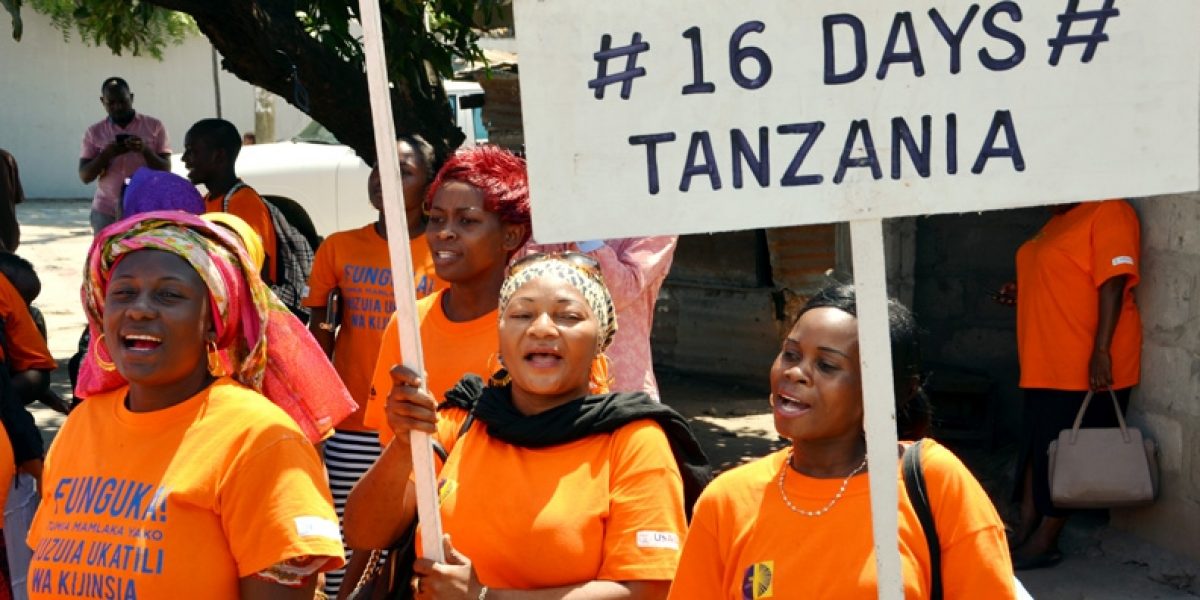A Constitutional Review process began in 2011 with the aim of amending the current Tanzanian constitution which was adopted in 1977. The final draft of the new constitution was submitted to parliament in October 2014.
Human rights activists such as Ms Usu Mallya stated that “Women still face a lot of problems that range from lack of resources to absence in decision-making organs and customary practices that remain discriminatory against them. I am sure that the proposed constitution shall solve a lot of problems associated with this matter.” Other activists such as Prof Ruth Meena and Ms Kenny Ngomuo stipulate that the proposed new constitution is a milestone in dealing with discrimination against women and the marginalised.
However, since last year’s general elections, the debate on gender parity has not moved much. Will the upcoming session of the National Assembly in November emphasise gender issues as stipulated in the proposed new constitution?
On women’s rights, the proposed constitution explicitly stipulates the rights of women, unlike the 1977 constitution. Other legal frameworks that shape women’s rights in Tanzania include: the Law of Marriage Act of 1971, customary and statutory laws, judicial precedents and International treaties such as the Convention on the Elimination of all Forms of Discrimination Against Women, (CEDAW), the International Covenant on Civil and Political Rights (ICCPR), the International Covenant on Economic, Social and Cultural Rights (ICESCR) and Convention on the Rights of the Child (CRC).
According to the Tanzania Human Rights Report of 2015, violations of women’s rights cover social, economic and political issues. The main violations of women’s rights are elderly women being violently attacked or killed on accusation of witchcraft, and early child marriages. The accusation of witchcraft is usually used to account for why bad things happen to certain people or communities. This has in turn culminated in violation and abuse of a wide range of human rights. Killings related to witchcraft are the second highest abuse of the right to life, behind mob violence. Witchcraft-related killings claimed the lives of 505 women and 260 men in 2013.
In Tanzania, approximately 37% of women are forced into marriage before they are 18. The rates of childhood marriages are high in the rural areas, where poverty and ignorance are more pronounced. Over the years, non-governmental organisations, women’s rights groups and individuals have come forward to advocate against child marriage, arguing that they lead to a number of societal problems. These are: increased cases of domestic and sexual violence, increased maternal health and infant health risks, greater exposure to HIV/AIDS, teenage pregnancies, denial of educational opportunities to young girls, isolation and psychological trauma and the continuation of the poverty cycle.
Some individual legal challenges to repeal laws that perpetuate women’s rights abuses have succeeded. Earlier in 2016, a case was filed by Ms Rebecca Gyumi, the founder and director of the Msichana Initiative in Tanzania focusing on children’s rights. She contended that sections of the Marriage Act of 1971 were against the Constitution which states that every person has the right to express himself or herself. The High Court ruled in her favour against child marriages.
Nonetheless, looking at the scale of women’s rights abuses, the current domestic legal framework of Tanzania does not deal robustly with abuses at a grassroots level and hence they persist, especially in rural areas. Neither does the proposed new constitution address all the rights abuses against women. However, it makes several provisions to recognise women’s rights. In its various sections, the proposed new constitution stipulates the right for women to own land and mandates protection against discrimination, harassment, abuse, sexual violence and harmful traditional practices. Furthermore, it recognises the rights of the elderly and calls for the establishment of the Commission for Human Rights and Good Governance whose main duty will be to promote, protect and monitor implementation of gender equality.
Most human rights activists concur that if the new constitution is adopted by parliament it will enhance gender parity, but it still considered to be wanting on the rights of the disabled and people living with HIV/AIDS. A planned referendum on the constitution for April 2015 was postponed, and the process has since become dormant.
Nonetheless, the proposed new constitution can present a way forward on advancing women’s rights. While it is not an all-inclusive solution, it spurs and supports debate of how women’s rights could be legally protected.








